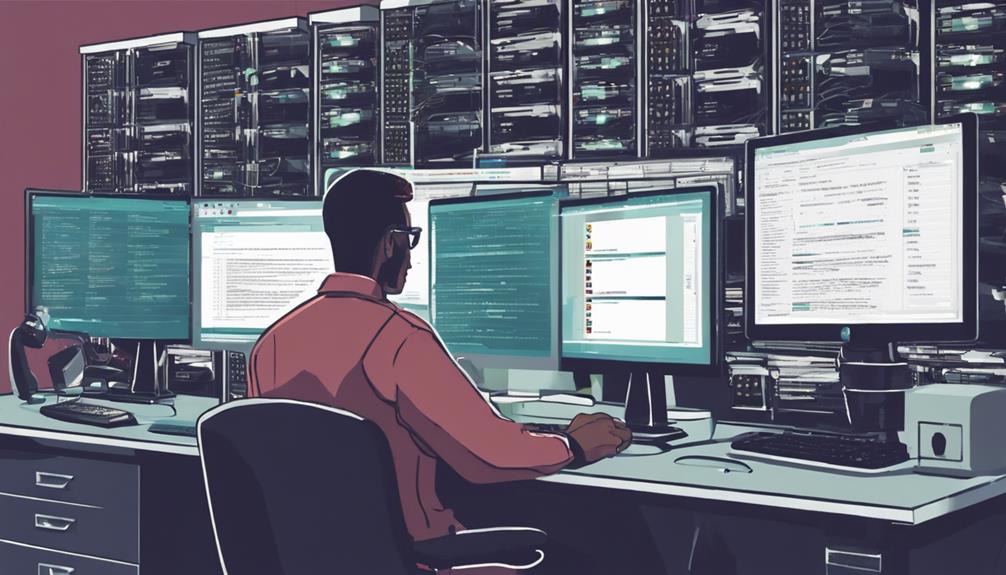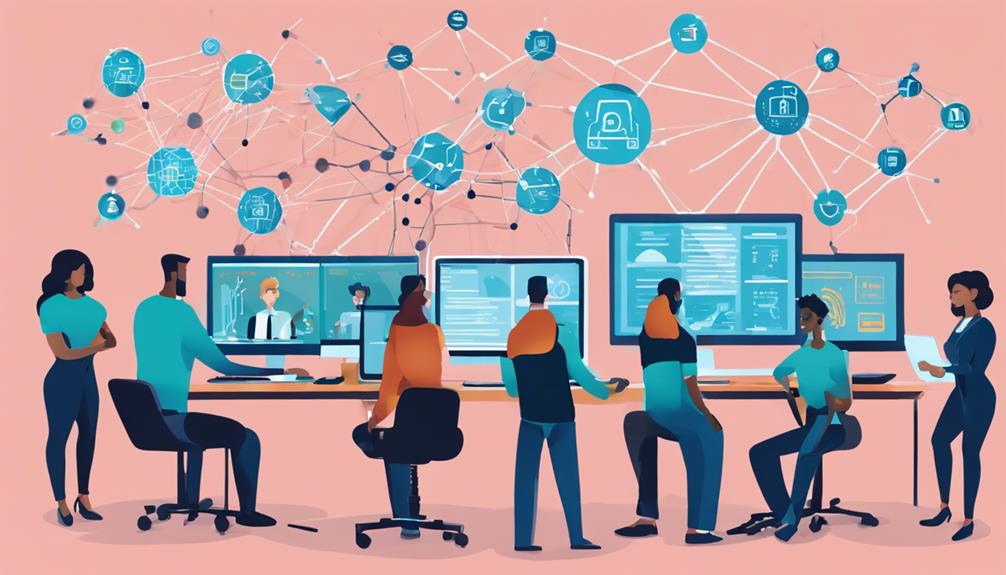When it comes to safeguarding your Baltimore Managed IT Services, adhering to the top cybersecurity tips is essential. Ensuring the implementation of Multi-Factor Authentication and staying diligent with regular software updates are just the beginning. Employee training and data encryption play vital roles in fortifying your defenses. But there's one more key aspect that shouldn't be overlooked. Stay tuned to discover the fifth essential cybersecurity tip that could make all the difference in protecting your sensitive data and systems.
Key Takeaways
- Implement Multi-Factor Authentication for enhanced security.
- Regularly update software and systems to patch vulnerabilities.
- Train employees on cybersecurity best practices.
- Encrypt data to prevent unauthorized access.
- Conduct regular security audits to identify weaknesses.
Multi-Factor Authentication Implementation

When implementing multi-factor authentication (MFA) for Baltimore Managed IT Services, it is crucial to understand its role in enhancing security measures and mitigating potential risks. MFA, an essential component of cybersecurity strategies, acts as a robust defense mechanism against data breaches and unauthorized access attempts. By requiring users to provide multiple forms of verification such as passwords, biometrics, or security tokens, MFA greatly reduces the likelihood of account compromises.
The implementation of MFA addresses the growing concerns surrounding cybersecurity threats in today's digital landscape. Data breaches, which have become increasingly common, can have severe consequences for businesses, leading to financial losses and reputational damage. With MFA in place, the risk of falling victim to such breaches is significantly lowered, providing a secure environment for sensitive information.
Studies have shown that MFA can prevent up to 99.9% of account compromises, making it an extremely effective cybersecurity measure for organizations looking to safeguard their data. By integrating MFA into various systems and applications, Baltimore Managed IT Services can enhance security without causing significant disruptions to daily operations.
Regular Software and System Updates
To maintain a secure IT environment for Baltimore Managed IT Services, prioritizing regular software and system updates is crucial to patch vulnerabilities and protect against evolving cyber threats. Ensuring that your software and systems are up to date is key in safeguarding your business from potential security breaches. Here are some essential points to keep in mind:
- Software Updates: Regular software updates are essential as they patch security vulnerabilities and protect your systems from the latest cyber threats.
- System Updates: Updating your systems enhances performance, fixes bugs, and strengthens defenses against malware and cyberattacks.
- Importance of Timely Updates: Outdated software and systems are easy targets for hackers, underscoring the critical need for timely updates to prevent unauthorized access and data breaches.
Managed IT services in Baltimore understand the significance of these updates in maintaining a secure IT environment for businesses. By staying proactive with software and system updates, you can significantly decrease the risk of cyber threats and protect your valuable data.
Employee Training on Best Practices

Employee Training plays a pivotal role in enhancing cybersecurity awareness and reducing the risk of cyber threats within organizations. Regular training sessions focusing on cybersecurity best practices are essential to equip employees with the knowledge needed to safeguard company data. Emphasizing the creation of strong, unique passwords and discouraging password sharing can greatly enhance security measures. Educating employees on how to detect and report suspicious emails or phishing attempts is critical in preventing potential data breaches. Training staff on the proper handling of sensitive information and reinforcing the importance of following data security protocols within the organization can mitigate risks associated with human error. Continuous cybersecurity education is important to keep employees informed about evolving cyber threats and the latest protective measures. By investing in thorough employee training, organizations can create a knowledgeable workforce that actively contributes to maintaining a secure digital environment and reducing the likelihood of data breaches.
Data Encryption for Unauthorized Access Prevention
Utilizing advanced data encryption techniques is essential for preventing unauthorized access to sensitive information and maintaining robust cybersecurity measures. Data protection through encryption is vital in safeguarding your organization's valuable data assets. Here are key points to keep in mind:
- Encryption Algorithms: Implement strong encryption algorithms like AES to convert data into a secure format, ensuring only authorized users can decrypt and access the information.
- End-to-End Encryption: Secure data both in transit and at rest by employing end-to-end encryption protocols, protecting it from interception and theft throughout its journey.
- Compliance Requirements: Adhere to data protection regulations such as GDPR, which mandate the use of encryption to safeguard personal and sensitive information, ensuring legal compliance and data security.
Regular Security Audits for Weakness Identification

Moving from safeguarding data through encryption measures, regular security audits play a vital role in identifying vulnerabilities within your network and systems. By conducting security audits frequently, you can proactively uncover potential weaknesses that cybercriminals may exploit. Utilizing tools like penetration testing and vulnerability scanning allows for a thorough assessment of your security posture. These audits help in pinpointing security gaps that, if left unaddressed, could lead to cyber threats and data breaches. Once vulnerabilities are identified, it is important to promptly implement security patches and updates based on the audit findings to strengthen your cybersecurity defenses. Staying ahead of cyber threats requires a continuous effort to monitor and enhance your systems' security. Regular security audits not only assist in fortifying your network but also safeguard the protection of sensitive information from malicious actors. Stay vigilant, stay secure.
